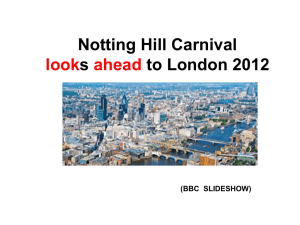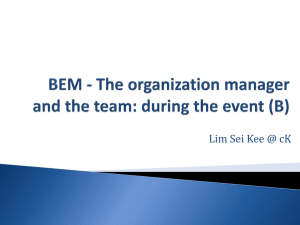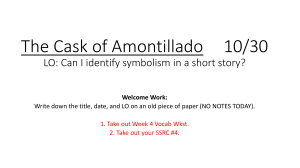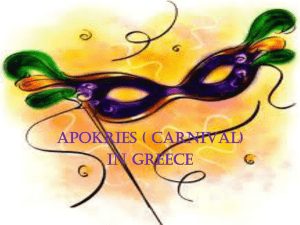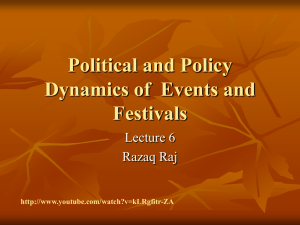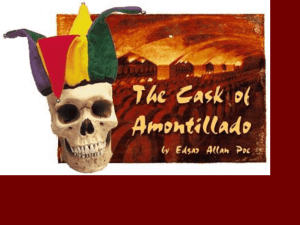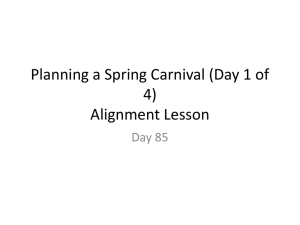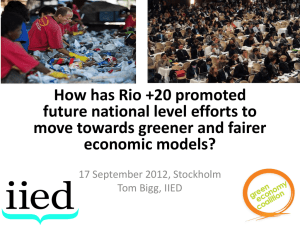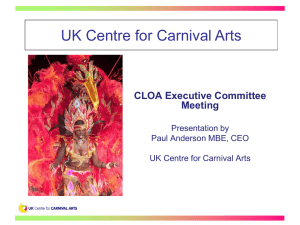Document
advertisement
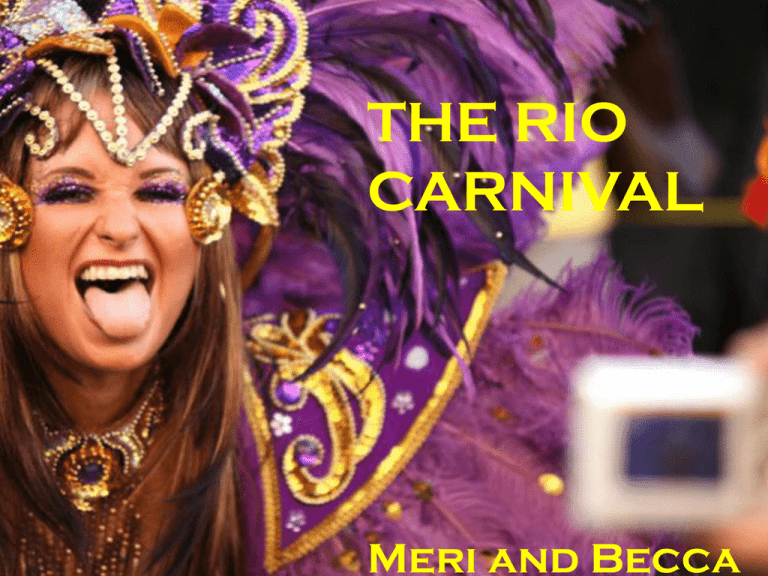
THE RIO CARNIVAL Meri and Becca Brief History of Rio Carnival A world famous festival held before Lent every year Dates back to 1723 2 million people take to the streets each day Rio Carnival is filled with revellers, floats and adornments from numerous samba schools located in Rio Samba School – composed of a collaboration of local neighbours that want to attend carnival together, they have some kind of regional, geographic common background Carnival as a Mega Event Carnival is the epitome of a mega event Rio Carnival is a globally recognised personality Extreme media exposure, appeals to the masses Generates significant economic, political, social and cultural capital Brazil basically stops for almost a week and festivities are intense day and night! Carnival in Context Pre modern – built around tradition, myth, rituals and seasons Modern - rationalises spaces (Sambadrome) and have become industrial Post modern – commodified – market values for signs and symbols - celebritised and disneyfied – altogether voyeuristic - carnival has become meaningless - very controlled event – but comes across at chaotic Identities at the Carnival Local identity – design in performance of carnival National identity – reflective of national views International/global identity – impressions we expect to see are played out through the media around the world – usually overindulgent and libidinous Global identity – carnival has significance to so many nations and has developed a global personality Heritage – African and European influences in Samba Carnivalesque – increasingly standardised around the world Gendered Idenites Rio Carnival is a very gendered event! Parade is predominantly women Objectification of women? Brazilian Identity Success of event has put Rio on the map Reinforces Brazilian culture – music and dance Commodification of culture... Spectacle Media spectacle (Kellner) and interest has helped create the spectacle seen at the Rio Carnival Reinforces global spectacle – consumed around the world as well as in Rio de Janiero Carnival is passively consumed spectacle for some carnival can oppose the spectacle (DeBord, 1967) – political elements Social, economic and cultural impacts An event this large has many impacts on the host city. Economic – millions for city, but where does this money go? Slums Social – in Brazil, carnival focused on the lower classes but now the upper classes participate with tickets in the sambadrome costing up to $500 each, this is also littered with celebs – brings communities together to put shows together Political – used as a politcal tool – generates regeneration income – is this the case in Brazil? Local Whole city stops for almost a week The celebrations gives everyone a chance to be involved, street festivals – free However... Increase in crime – lack of security Global Worlds perception of Brazil – flamboyant, beautiful women, etc Through globalisation, Brazilian influences have spread over the globe, music dance and culture The traits of Rio Carnival can be enjoyed everywhere Task How much do you think the Rio Carnival benefits the Brazilian people? Do you think the Rio Carnival is still seen as a religious festival?

